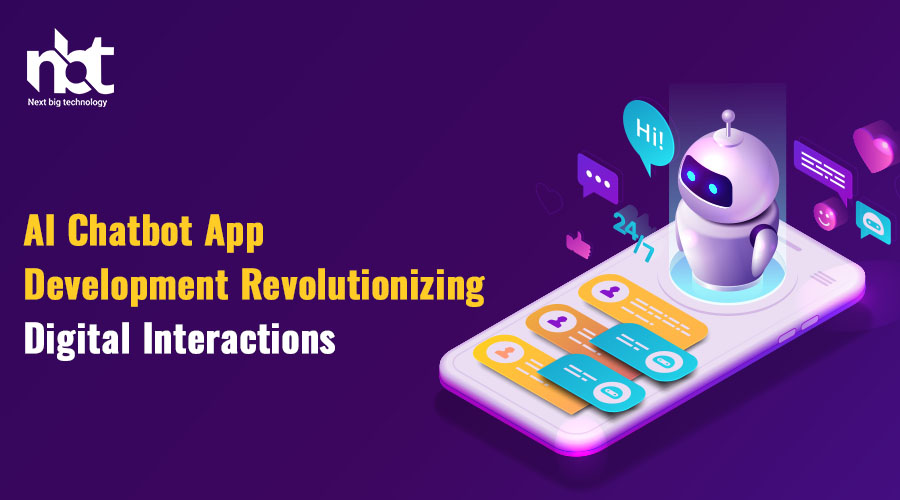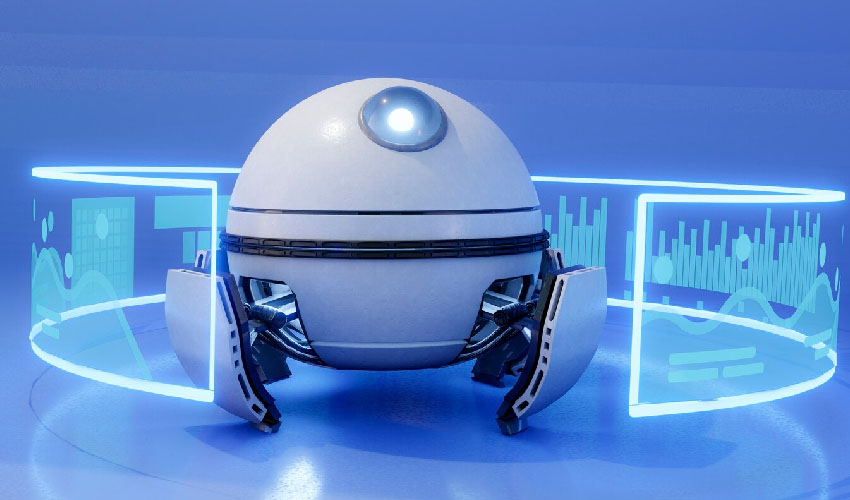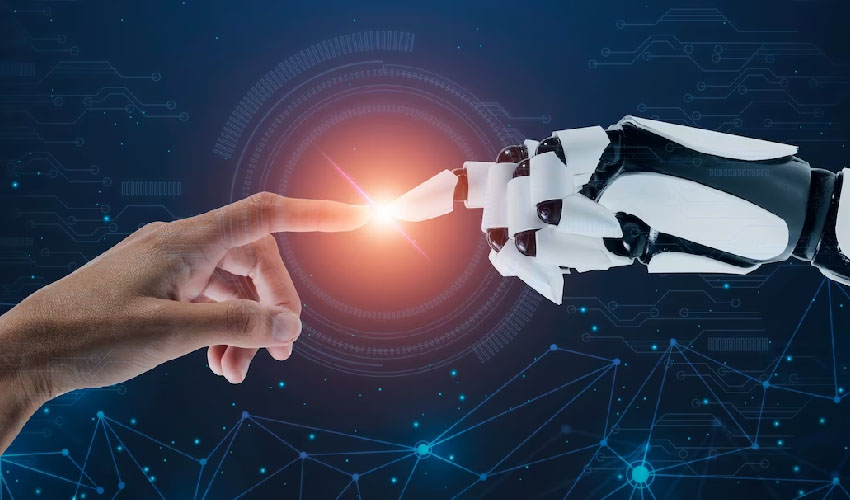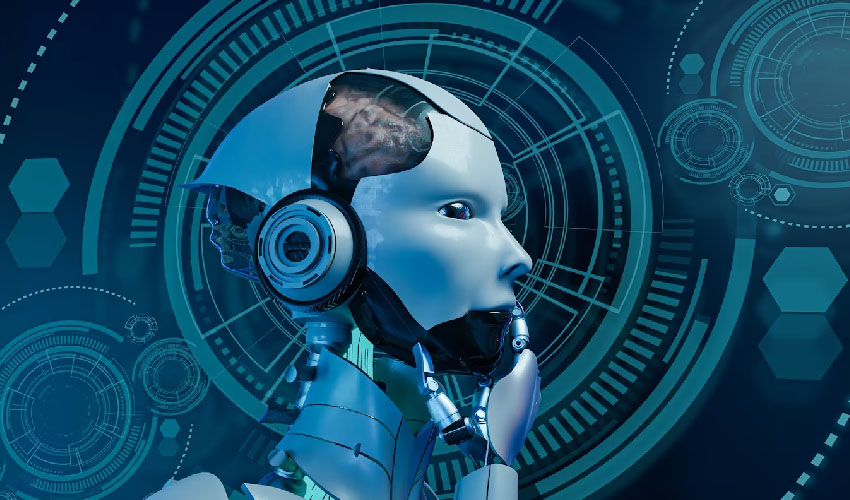Table of Contents
Introduction
A. Definition of AI Chatbot App Development
AI chatbot app development involves creating applications that leverage AI and machine learning to simulate human-like conversations. These applications serve various purposes, from assisting users with queries to automating tasks.
B. Significance in the Digital Era
In an era where digital interactions dominate, AI chatbots play a pivotal role in enhancing user experiences. Their ability to understand and respond to natural language makes them valuable assets for businesses looking to engage with their audience effectively.
Evolution of AI Chatbots
A. Early Chatbot Models
The concept of chatbots dates back to the early days of computing. These primitive models could respond to specific commands but lacked the sophistication of today’s AI-driven chatbots.
B. Advancements in Natural Language Processing
The evolution of natural language processing (NLP) marked a turning point. AI chatbots became capable of understanding context, making conversations more intuitive and human-like.
C. Integration of Machine Learning
Modern AI chatbots integrate machine learning algorithms, enabling them to learn from user interactions and improve their responses over time. This continuous learning sets the stage for more intelligent conversations.
Key Components of AI Chatbot App Development
A. Natural Language Processing (NLP)
NLP enables chatbots to comprehend and interpret human language, making interactions more conversational and contextually aware.
B. Machine Learning Algorithms
Machine learning algorithms empower chatbots to adapt and improve based on user input, allowing for a more personalized and efficient user experience.
C. User Interface (UI) Design
An intuitive UI design ensures that users can seamlessly interact with chatbots, enhancing the overall user experience.
D. Integration with Messaging Platforms
AI chatbots are often integrated with popular messaging platforms, meeting users where they are and simplifying accessibility.
Benefits of AI Chatbot Apps
A. Enhanced Customer Interaction
AI chatbots provide immediate and accurate responses, enhancing customer interactions and satisfaction.
B. 24/7 Availability
Unlike human agents, chatbots are available 24/7, ensuring round-the-clock support and engagement.
C. Personalization
The ability to analyze user data allows chatbots to offer personalized recommendations and services.
D. Data Analytics and Insights
Chatbots generate valuable data that businesses can analyze to gain insights into user preferences and behavior.
Challenges in AI Chatbot App Development
A. Understanding User Intent
One of the challenges is accurately understanding user intent, especially in complex or ambiguous queries.
B. Handling Complex Queries
AI chatbots may struggle with intricate or industry-specific queries that require specialized knowledge.
C. Continuous Learning and Improvement
Ensuring that chatbots consistently learn and improve without introducing errors is an ongoing challenge.
Popular AI Chatbot Development Platforms
A. Dialogflow
Dialogflow, a Google Cloud service, offers a robust platform for building AI-powered conversational interfaces.
B. Microsoft Bot Framework
Microsoft Bot Framework provides a comprehensive set of tools for developing intelligent and interactive bots.
C. IBM Watson Assistant
IBM Watson Assistant leverages AI to create powerful chatbots capable of understanding and responding to user inputs.
D. Rasa
Rasa is an open-source platform that allows developers to create AI chatbots with a high degree of customization and control.
Steps in Developing an AI Chatbot App
A. Define the Purpose and Goals
Clearly defining the purpose and goals of the chatbot sets the foundation for development.
B. Choose the Right Platform
Selecting the appropriate development platform aligns with the specific requirements and functionalities of the chatbot.
C. Design Conversational Flow
Crafting a seamless conversational flow ensures a natural and user-friendly interaction.
D. Integrate AI and Machine Learning Models
Incorporating AI and machine learning models enhances the chatbot’s ability to understand and respond intelligently.
E. Test and Refine
Thorough testing and refinement are crucial to iron out any glitches and enhance overall performance.
Real-world Applications of AI Chatbot Apps
A. Customer Support
AI chatbots streamline customer support by providing instant responses and solutions to common queries.
B. E-commerce
In the e-commerce sector, chatbots assist users in finding products, placing orders, and resolving issues.
C. Healthcare
Chatbots are employed in healthcare for appointment scheduling, symptom checking, and providing medical information.
D. Education
Educational chatbots offer personalized learning experiences, answering queries and guiding students.
Future Trends in AI Chatbot App Development
A. Voice-enabled Chatbots
The rise of voice-enabled chatbots allows users to interact with applications using natural language.
B. Multilingual Capabilities
Chatbots with multilingual capabilities cater to diverse global audiences, breaking language barriers.
C. Integration with IoT Devices
The integration of chatbots with Internet of Things (IoT) devices expands their functionalities and reach.
D. Ethical Considerations
As AI chatbots become more advanced, addressing ethical considerations in their development and use is crucial.
Conclusion
A. Recap of the Importance of AI Chatbot App Development
In conclusion, AI chatbot app development is a transformative force, enhancing digital interactions and user engagement.
B. Emphasis on Ongoing Advancements
With ongoing advancements, the future holds even more exciting possibilities for the evolution of AI chatbots.
Thanks for reading our post “AI Chatbot App Development: Revolutionizing Digital Interactions”. Please connect with us to know more about AI Chatbot App Development.















